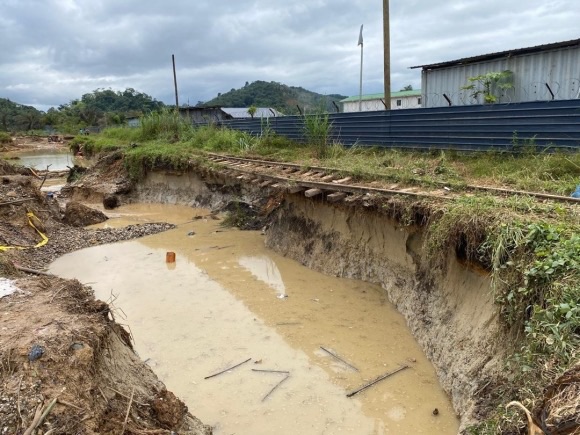Government to Review Over 2,000 Mining Licences Issued Between 2017 and 2025
Ghana’s government has announced a comprehensive review of more than 2,000 mining licences issued over the past eight years, with plans to revoke unlawfully acquired permits and prosecute individuals found culpable of engaging in illegal mining activities.
This development was confirmed by Deputy Minister for Foreign Affairs, James Gyakye Quayson, during an interaction with members of the Ghanaian diaspora in Belgium earlier this week. According to him, 2,167 mining licences were granted between 2017 and 2025, with many allegedly allocated to individuals with political influence.
Gyakye Quayson emphasized that some licences were obtained under questionable circumstances, contributing significantly to environmental degradation, especially the pollution of water bodies and destruction of forest reserves.
The review is part of a broader national effort to combat illegal mining, widely known in Ghana as “galamsey,” which has been blamed for the contamination of major rivers such as the Pra, Ankobra, Offin, and Birim. Government officials say the indiscriminate issuance of mining licences has undermined environmental sustainability and affected rural livelihoods dependent on clean water and arable land.
“From 2017 till date, over 2,000 licences were issued. Unfortunately, many were acquired by government leaders and politically connected individuals who treated mining as personal business ventures,” Gyakye Quayson said. “We are taking steps to restore the country’s water bodies. Licences will no longer be distributed randomly. We are reviewing all permits and prosecuting those who violated the law.”
The Deputy Minister noted that the review forms part of ongoing institutional reforms aimed at restoring accountability to the natural resource sector.

Illegal and unregulated mining has become a national crisis in Ghana, Africa’s leading gold producer. The practice not only endangers local ecosystems but also undermines the legal mining industry, contributes to tax evasion, and fuels social tensions.
The potential prosecution of individuals who fraudulently acquired licences marks a significant shift in political will, especially as many of these cases involve persons in positions of power or influence.
Across West Africa, illegal mining has emerged as a cross-border threat, with shared rivers and forests being degraded at alarming rates. Ghana’s crackdown could set an example for neighboring countries also grappling with resource governance issues.
In addition to the licence review, the government is finalizing new laws that will completely prohibit mining activities in water bodies and designated forest reserves. The proposed legislation is part of an intensified crackdown on galamsey and seeks to clearly define protected zones to eliminate legal loopholes.
Sources at the Ministry of Lands and Natural Resources confirm that the new legal framework will also impose stricter penalties on companies and individuals who engage in mining without environmental clearance or who operate beyond the scope of their licences.
This policy aligns with recent court rulings that have upheld the government’s authority to confiscate equipment and prosecute illegal miners, including foreign nationals involved in unlicensed operations.

Communities in mining areas across Ghana have long complained about the adverse effects of illegal mining. In the Western and Ashanti Regions, for example, several towns have reported rising cases of waterborne diseases due to polluted rivers and contaminated boreholes.
A 2024 report by the Water Resources Commission noted that over 60 percent of monitored rivers in mining zones were unfit for domestic use. Efforts by the Ghana Water Company Limited to treat river water have also become more expensive due to increased sedimentation and chemical contamination.
Traditional authorities, environmental groups, and civil society organizations have been vocal in demanding action. Nana Kwame Twumasi, a chief in the Ahafo Region, recently told a regional stakeholders’ forum: “Our cocoa farms are being destroyed, our streams are no longer drinkable, and yet the perpetrators walk free.”
The Deputy Minister’s comments also hint at political accountability within the mining sector. By acknowledging the involvement of politically connected persons, the government has signaled a willingness to confront systemic corruption.
Analysts, however, warn that any prosecutions must be transparent and free from political bias. Previous anti-galamsey campaigns have often been criticized for targeting small-scale miners while shielding powerful actors.
IMANI Africa, a policy think tank, has urged the government to publish the full list of licence holders under review and make the process open to public scrutiny.
The government’s decision to review and possibly revoke over 2,000 mining licences could represent a turning point in Ghana’s long-running battle against illegal mining. However, successful implementation will depend on institutional independence, political will, and enforcement consistency.
With environmental degradation threatening water security, agriculture, and rural livelihoods, timely and credible action is essential. Ghana’s approach may serve as a model for other African nations facing similar challenges in managing natural resources responsibly.
Read also: Two Suspects Arrested Over Alleged Assassination Plot Against Akyem Kwabeng Chief and Queen Mother

